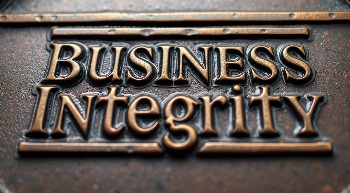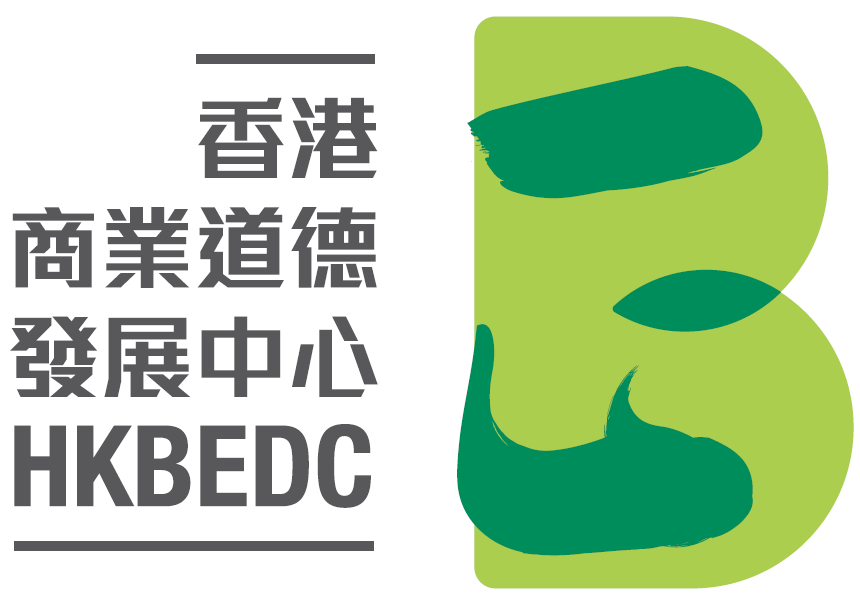

New Zealand's international standing
Business ethics form the foundation of a trustworthy and sustainable corporate environment. They encompass the moral principles and standards that guide decision-making, ensuring fairness, accountability, and respect for all stakeholders - employees, customers, investors, and society at large. In an era marked by increasing regulatory scrutiny and public demand for transparency, ethical business practices are no longer optional but essential for long-term success.
Key ethical considerations include integrity, fairness, accountability, respect, and compliance, along with critical issues such as anti-money laundering (AML) and financial transparency.
Business Ethics : An Overview
Core Principles





Business Ethics Education
The Hong Kong Business Ethics Development Centre (HKBEDC) provides a comprehensive suite of free anti-corruption and ethics training programmes designed to help business practitioners and professionals deepen their understanding of anti-corruption laws and foster a strong culture of integrity.
Officers are professionally trained to deliver customised talks tailored to the unique needs of various trades, industries, and professional sectors.
New Zealand consistently achieves top-tier rankings in major international anti-corruption indicies, most notably sharing first place with Denmark in Transparency International's Corruption Perceptions Index (CPI). This esteemed position reflects the country's robust legal frameworks, strong and independent public institutions, and a pervasive culture of transparency and accountability. The nation's high score is underpinned by effective anti-bribery laws, a free and active press, and a public sector known for its integrity and low levels of petty and grand corruption. This reputation for clean governance is a cornerstone of New Zealand's international identity and a significant source of soft power on the global stage.
This premier ranking provides a substantial and direct boost to trade and investment. For international businesses and investors, a high anti-corruption score drastically reduces perceived risk, signalling a stable, predictable, and fair operating environment. It lowers the due diligence burden and costs associated with investing, as the likelihood of encountering bribery or opaque dealing is minimal. This credibility acts as a powerful competitive advantage, attracting foreign direct investment (FDI) and facilitating trade partnerships, as counterparties have high confidence in the enforceability of contracts and the rule of law. Ultimately, New Zealand’s clean reputation functions as a key non-tariff trade barrier in its favour, fostering economic growth by assuring global markets that it is a safe and reliable place to conduct business.
Integrity
Integrity is the unwavering commitment to honesty, strong moral principles, and consistency between words and actions, even when no one is watching. It serves as the ethical bedrock of an organisation, fostering trust with all stakeholders. This means transparent financial reporting, truthful marketing, and ethical sourcing.
Leaders must model integrity to inspire ethical behaviour throughout the company. The benefits are substantial: enhanced reputation, reduced legal risks, and stronger employee loyalty.
Conversely, failures of integrity can lead to catastrophic reputational damage, massive fines, and a loss of stakeholder confidence. Ultimately, integrity is a strategic asset that builds sustainable success by ensuring a company's actions align with its professed values.
Fairness
Fairness in business ethics demands the equitable and impartial treatment of all stakeholders, including employees, customers, suppliers, and competitors. It requires justice in decision-making, ensuring opportunities, rewards, and consequences are distributed without discrimination or favouritism.
This principle is applied through non-discriminatory hiring practices, fair pricing, just compensation, and ethical supply chain management. A commitment to fairness enhances employee morale and productivity, builds unshakeable customer trust, and ensures compliance with laws regarding discrimination and fair competition.
Companies which pay fair wages, demonstrate that ethical treatment is also a sound business strategy, leading to lower turnover and a stronger brand reputation.
Accountability
Accountability is the obligation of individuals and organizations to take ownership of their actions, decisions, and outcomes, both positive and negative. It involves transparency in operations and accepting responsibility for mistakes, followed by implementing corrective measures.
This is achieved through clear governance structures, defined roles, performance measurement, and robust whistleblower protections. A culture of accountability strengthens risk management by allowing early issue identification, fosters organisational learning, and builds stakeholder trust.
The absence of accountability leads to ethical failures, catastrophic financial losses, and irreparable harm to a company’s reputation and social license to operate.
Respect
Respect in business is the genuine acknowledgment of the inherent dignity, rights, and contributions of every stakeholder. It involves actively valuing diverse perspectives, ensuring psychological safety, and fostering an inclusive environment where everyone feels heard.
This principle extends to respectful customer service, ethical competitive practices, and honourable community engagement. Companies that institutionalise respect, with features such as pay equity initiatives, benefit from significantly higher employee engagement, customer loyalty and innovation.
Conversely, a lack of respect creates a toxic culture, high turnover, and brand damage. Respect is a strategic imperative that attracts top talent and builds resilient, trustworthy organisations.
Compliance
Compliance refers to the adherence to laws, regulations, and internal policies that govern business operations. It is the essential baseline of business ethics, providing a clear framework for legal and acceptable conduct.
Key areas include labour laws, environmental regulations, data protection statutes like GDPR, and critical financial rules such as Anti-Money Laundering (AML) protocols. While compliance is often seen as a defensive measure to avoid fines and legal action, its true value is in structuring operations to be transparent and accountable.
Effective compliance programs include regular training, independent audits, and robust monitoring systems, ensuring the company not only follows the letter of the law but also upholds its ethical commitments to society.
General Staff Training Objectives
Managers Training Objectives
Senior Management Training Objectives
For enquiries or to arrange a training session,
you may directly contact the HKBEDC Service Hotline at +852 2826 3288.

